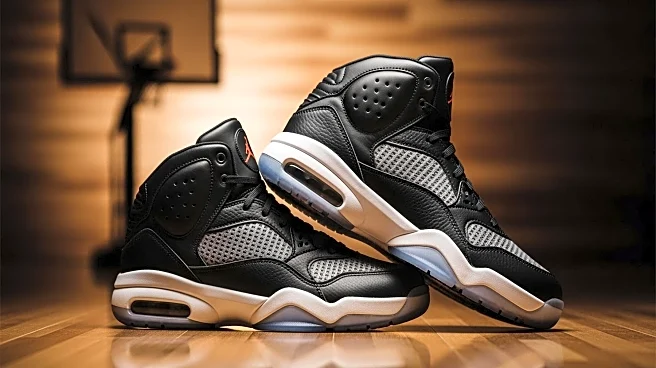What's Happening?
Dwyane Wade, six years after retiring from the NBA, shared reflections on his career in an interview with Matthew Roberson of GQ. Wade, who retired after the 2018-19 season, cited the loss of his 'explosion
level' as a key factor in his decision to step away from professional basketball. He expressed nostalgia for the competitive edge he once had, stating, 'What I do miss is being better than people. I miss being good at something, really good at it.' Wade's illustrious career included a Finals MVP award, Olympic gold, and multiple NBA championships with the Miami Heat.
Why It's Important?
Wade's reflections offer insight into the mindset of elite athletes as they transition from professional sports to retirement. His comments highlight the challenges athletes face in finding fulfillment and purpose beyond their competitive careers. Wade's legacy in the NBA, marked by significant achievements and contributions to the Miami Heat, continues to influence the sport and inspire future generations of players. His transition to retirement also underscores the importance of mental and emotional well-being for athletes as they navigate life after sports.
What's Next?
While Wade has retired from playing, his influence in the basketball world remains strong. He continues to engage with the sport through various endeavors, including media appearances and involvement in basketball-related projects. Wade's reflections may inspire discussions on athlete transition programs and support systems to help players adjust to life after professional sports. His legacy as a player and his post-retirement activities will likely continue to impact the basketball community.
Beyond the Headlines
Wade's comments on missing the competitive edge highlight broader themes of identity and purpose for retired athletes. The transition from professional sports to retirement can be challenging, as athletes seek new avenues for fulfillment and success. Wade's reflections may prompt discussions on the psychological aspects of retirement and the importance of support systems for athletes as they navigate this transition.











